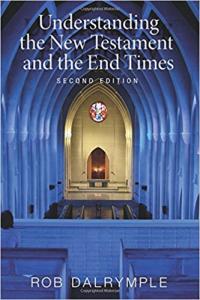
I fully agree that we are supposed to bless Israel (Gen 12:3). And I do believe that God is faithful to His promises. And I think he has: In Jesus!
That is, Jesus is Israel. This is fundamental to the NT and to the Bible. Let me make several points:
First, I am quite grieved by the fact that many Christians who engage in this debate are too often not willing to honestly look at Scripture. Regardless of what side we end up on, we must be viewed as people of love who are open and honest.
Instead, this issue, perhaps more than any other issue, often engenders more narrow-mindedness and dogmatism among Christians. We as Christians must be seen as those who are pursuing truth in love. If we are found to be wrong about something, then we confess our wrong and move forward.
But for some reason, we don’t. We embitter ourselves towards one another and in doing so disgrace the Gospel of Jesus Christ; not only towards our brothers and sisters in Christ but towards the world.
So I ask that you read and discern what I am saying. As I hope to do with any responses. To spew venom and hatred toward one another only makes a mockery of the Kingdom of God.
Now I understand that we have all learned to read the Bible in a certain manner. For those who are reading this and are holding to some of the mainstream views of evangelical Christianity, let me make a couple of opening comments.
I have great respect for much within evangelicalism. Evangelicals tend to have a zeal for God that I wish was shared by all followers of Christ. They often have a great heart for God and a great love for Jesus. And they are deeply committed to the Bible. I affirm all of this myself!
My first point is that the manner in which many of you have learned to read the Bible (which is how I too was raised to read it) is not the historical position of the church, nor even the common reading among Christians today.
With this in view, I am asking for you to understand this and to try to view things as I am presenting them. See if my approach, which is the traditional view of the Church, not only makes sense of the OT but the NT as well. That is, don’t assume your view for a moment. Instead, see if mine makes sense on the terms in which I am presenting it (i.e., don’t assume that you are right and thereby conclude that I am wrong. Listen to my side with an open mind and evaluate it on its own terms. Such is only fair).
Second, this is not simply a question of one person citing various verses and another citing others. Clearly, both sides have their arsenal (such is true for most issues upon which Christians debate among themselves). The question is which paradigm (worldview; perspective; approach to reading Scripture) can account for all of the verses in question?
This is the essential question! That is, I am not suggesting that based on these ten verses my position is therefore correct. When we argue this way what is most often left out of the equation is the fact that you too have ten verses that support your position.
Instead, I am suggesting that we have been reading the text with the wrong set of lenses. The lenses that we have been wearing make some sense of parts of Scripture but do not truly account for the entirety of the Bible.
Third, these lenses are not those that the Church has been using for the last 2,000 years. Instead, they are new, they are the product of a modernist worldview, and they are seriously deficient. So again I ask that you put them aside for a moment and try on this set of lenses and see if the biblical text does not come into clearer focus.
Reading the Bible in light of Jesus

When it comes to questions of prophecy and the fulfillment of OT promises I would suggest that the answer is found by reading the OT in light of the NT, and even more so reading the OT in light of Christ.
Sure I believe that the OT stands on its own. That is, we study the OT in light of itself in order to determine what it meant to the audience to whom it was written. But if we want to understand what it meant in light of the whole of God’s revelation we must turn to the NT. For it is clear that Jesus read the OT and saw its fulfillment in light of Himself. This is what Peter was saying when he notes that the OT prophets didn’t fully understand the fulfillment of their prophecies (1 Pet 1:10-12).
Now when we approach the NT we notice that the fulfillment of the OT is not what was expected—especially from a straightforward reading of the OT. We recognize that the Pharisees and leaders of Israel did not accept Jesus. Part of the reason is that they had come to expect the Kingdom of God to look a certain way based on their reading of the OT. But their reading was wrong.
It was wrong because they failed to understand that the OT was about Jesus! And since Jesus didn’t meet their expectations, nor their wants and wishes, they were not about to reread the OT in light of Jesus.
It is here that I think that many Christians do that same thing. For example, many of the OT promises to the people of God are clearly applied to Jesus in the NT. This corresponds with the NT’s emphasis that the entire story finds its fulfillment in Jesus (2 Cor 1:20; Luke 24).
Jesus testifies to this fact to the two men on the road to Emmaus. For, according to Luke 24, the men were grieved because, as they said, they “were hoping that it was He who was going to redeem Israel” (Luke 24:21). Now we should note that Luke has already told his readers that Jesus is the one who will redeem Israel (Luke 2:25, 38—both Simeon and Anna were looking for this and Luke clearly wants us to see that the baby Jesus is the fulfillment of this promise). So we the readers already know that these two men are missing the significance of Jesus.
Luke then tells us that Jesus replied to the men, “‘O foolish men and slow of heart to believe in all that the prophets have spoken! Was it not necessary for the Christ to suffer these things and to enter into His glory?’ Then beginning with Moses and with all the prophets, He explained to them the things concerning Himself in all the Scriptures” (Luke 24:25-27). Thus, they came to understand that their hopes that Jesus was going to redeem and restore Israel have indeed been fulfilled.
The fulfillment, however, came through Jesus’ suffering! This was the part they didn’t get. That the restoration of Israel must happen through suffering. And Jesus has done so. Note, Jesus doesn’t say to them: “I am not here to redeem Israel but to die for your sins. I will redeem Israel in the future.” No, Jesus gently rebukes them for failing to understand that “all the prophets” have noted; namely, that the restoration of Israel comes through suffering!

Thus, a paradigm shift is needed. The paradigm shift simply necessitates making Jesus and his suffering the center of Scripture. If all is fulfilled in Him (2 Cor 1:20; Luke 24), then we too must re-read the OT. If the promises are fulfilled in Christ, then does this mean that we should understand the NT in terms of this fulfillment? Yes. And when we do so, the entire story of Scripture begins to make much more sense.
Thus, when it comes to particular questions such as who are the people of God, we must also ask, ‘How does the NT view such?; or What does the fulfillment of this in Christ look like?’ Here is where many get thrown off. The fulfillment of these things in the NT does not mean that they have been fulfilled in all their fullness. For that, we are awaiting the New Jerusalem.
For many evangelicals, this is an ‘either’ ‘or’ set of propositions. That is, either the prophecies have been fulfilled or they haven’t. For them, since the fulfillment does meet their expectations, they have concluded that the fulfillment is still future. But, again, when we read the NT we begin to notice that Jesus has ushered in the beginning of the fulfillment and that He brings about the consummation of all things at His return (1 Cor 15:25).
When we look at the question of who are the people of God, we see that Paul clearly says, “He is a Jew who is one inwardly” (Rom 2:29). Later, Paul notes that Abraham is the “father of all who believe” (Rom 4:11).
By any reckoning, that makes all Christians, regardless of race, the children of Abraham! Paul goes on to say that, “if those who are of law are heirs, faith is made void and the promise is nullified” (Rom 4:14).
Thus, Paul concludes, “For this reason it is by faith, that it might be in accordance with grace, in order that the promise may be certain to all the descendants, not only to those who are of the Law, but also to those who are of the faith of Abraham, who is the father of us all” (Rom 4:16).
Again, that makes all Christians the descendants of Abraham—including any Jewish person who has the faith of Abraham, which is in Christ!
Now let’s keep the question of whether or not there is a future for ethnic Israel also on the shelf for a moment. The point is that Paul clearly sees the people of God are included in the descendants of Abraham—this is what the grafting into the tree of Israel is all about (Rom 11). One only has to look at the word ‘inheritance’ in the NT to see that this word, which was central to the promises of the OT covenant related to land and family, is applied to the Christians in the NT. Paul, in fact, notes that the ‘inheritance’ cannot be based on the law (Gal 3:18).
Furthermore, note that even in the OT God’s people were never tied to a race. For, in the OT the race of Israelites were not all without exception recipients of God’s promises. Paul says this emphatically: “For they are not all Israel who are descended from Israel; neither are they all children because they are Abraham’s descendants” (Rom 9:6-7).
Such a reading of the OT also makes sense as to why Isaiah 49 (which is about Israel) is applied both to Jesus (Luke 2:32) and to Paul and Barnabas (Acts 13:47). We see that the role of Israel in the OT was to be a light unto the nations (Isa 42:6; 49:6). Yet, we know that Jesus claims that He is the light of the world (John 8:12; 9:5). And we see that Jesus tells His disciples that they are the light of the world (Matt 5:14). It is both.
The fulfillment of the call and mission of Israel is first Jesus and then His followers. Now, this may not look like the grandiose fulfillment promised in the OT. But Jesus Himself told us that the Kingdom of God will begin in an insignificant manner (like a mustard seed; Mark 4:30-32) and then will become “larger than all the garden plants” (Mark 4:32).
Thus, the fulfillment has come in Christ, continues through the Church by means of the Spirit, and climaxes in the New Jerusalem. This mission will be accomplished only in the New Jerusalem; when those from “every nation, tribe, people, and tongue, stand before the throne” (Rev 7:9).
We can affirm this understanding throughout the NT. Thus, Ephesians 2:11-3:6 encourages the Gentiles that they are included in the family of God! Paul begins by equating the Gentiles with those who had no share in the land-kinship of Israel (2:12). Then Paul describes the work of Christ as breaking down the barrier between Jew and Gentile and its consequences: “You are no longer strangers and aliens, . . . but are of God’s household” (Eph 2:19; cf Mark 3:34-35). Finally, Paul summarizes their new position as ‘fellow heirs’, ‘fellow members’, ‘fellow partakers’ (Eph 3:6).
Peter, also calls the NT people of God, “a holy priesthood; . . . A chosen race, a royal priesthood, a holy nation” (1 Pet 2:5, 9). These titles are exclusively used in the OT for the people of Israel (Chosen Race: see Isa 43:16-20—text notes that YHWH provides for His people in the midst of adversity; Royal priesthood: see Exod 19:5-6—text also alludes to God’s deliverance of His people from bondage; People for God’s own possession: cp Exod 19:5; Isa 43:21; Mal 3:17). Thus, the NT views this as fulfilled in the inclusion of the Gentiles through the work of Christ by means of the Holy Spirit.
Conclusion: when we read the OT through the lens of Jesus, as I believe that NT writers did, then we can see clearly that the fulfillment of the OT begins in Jesus, continues through the NT people of God, and climaxes in the New Jerusalem.
To suggest that the promises to Israel still apply to an ethnic race fails to understand the fulfillment in Jesus and the nature of the fulfillment. Yes, this may not be what we expected. But, we also see that the fulfillment transcends what we might have expected.
Therefore, if the fulfillment for the call of Israel is in Christ, His people, and the New Jerusalem, and the promise was that those who bless/curse Israel God will bless/curse, then we should expect to see this principle carried forth in the NT. And we do.
This is the essence of the parable of the Sheep and the Goats, where God rewards or punishes men for how they have treated “the least of these brothers of mine” (Matt 25:40, 45). And this theme runs through the book of Revelation where the judgment of the wicked is because of how they have treated God’s people (e.g., Rev 6:10; 16:5-6; 17:6-18:24).
Thus, to bless Israel means to bless God’s people; and in the NT God’s people transcend any given race.
NB: My goal is to keep these posts free of charge. I do not intend to ever hide them behind a paywall. I can only do this if those of you who have been blessed by them and can afford to give ($5, $10, $25, or more/month) do so. You can give a tax-deductible contribution by following this link.
Please share this post and let others know about determinetruth.
If you wish to view this blog on your smartphone through the Determinetruth app simply download the “tithe.ly church” app on your smartphone and insert “determinetruth” as the church name you wish to follow. Once it is loaded, simply click on the “blog” icon and they will automatically load.
If you would like to have Rob speak at your church or organization in person or via Zoom, please let us know by filling out the contact info on the Contact me tab on this site.












